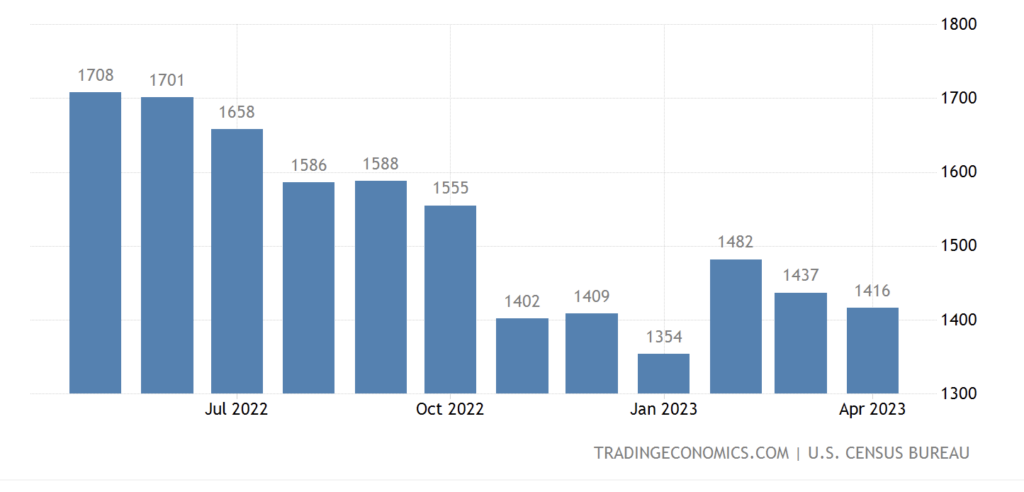- GOLD IRA
- Download Our 2024 Precious Metals IRA Investor’s Guide.
Click Here  Gold IRA
Gold IRA
 Investing
Investing
-
- CRYPTO IRA
- PRICES & STATS
- RETIREMENT PLANS
- BLOG
 Questions? Call (888) 820 1042
Questions? Call (888) 820 1042
Hedge Funds Buying Houses: Who’s Buying & How Is it Affecting the Market?
Disclosure: Our content does not constitute financial advice. Speak to your financial advisor. We may earn money from companies reviewed. Learn more
Last Updated on: 18th May 2023, 05:21 pm
There’s been a lot of talk about hedge funds buying houses in recent years. But when did institutional buying of homes start? Well, it’s been around for a long time. However, things got really active after the 2008 crisis.
When the Federal Reserve dropped interest rates to historically low levels investors started looking for somewhere new to put their money that wasn't in bonds. Real estate offered a perfect opportunity because rental properties create regular income streams, just like bonds.
When you buy thousands of houses, cash in hand, you have no mortgage default risk and only tenant risk. So, when tenants stop paying you simply replace them with new ones. Risk is minimal compared to mortgage loans where we have seen a massive systemic risk in the case of a crisis.
Add to the equation that houses were much cheaper after the 2008 crisis, creating a bargain in the eyes of institutional investors. These factors most likely caught institutional investors’ attention. And the trend has been ongoing since. So much so that many tenant unions and local community activists are organizing to fight back against corporate landlords. In 2023, certain factions within U.S. Congress are even considering legislative action to limit the buying power of corporate entities in the residential real estate market.
Not only are hedge funds buying houses but also large asset managers, like Blackstone and Invesco, that manage billions of dollars of assets. We’ll take a look at what it means for the housing market when hedge funds are heavily involved in buying houses.

Table of Contents
Short History of Institutional Buying
Real estate is an asset class that institutional investors have been buying and holding for decades. The legal framework for Real Estate Investment Trusts (REITs) was established in 1960. Most of the big trusts are quoted on public exchanges.
So, this allows the average investor to gain exposure to real estate even if they don’t have hundreds of thousands of dollars to buy a whole property. However, REITs usually buy multifamily apartment blocks, office buildings, infrastructure, and commercial and industrial space.
They help finance these projects and give investors their knowledge and expertise in managing properties. While investors gain exposure to real estate returns under favorable tax conditions for a fee.
What is becoming a new trend is not institutional buyers of real estate per se. In the past single-family homes had not been targeted. This trend of buying up thousands of single-family homes was initially enforced on banks that had large portfolios of foreclosed home loans.
Right after the 2008 crisis, many financial institutions saw themselves with large portfolios of properties that were worth often half the value of the loan. Here step in the hedge funds and some asset managers to take advantage of a possible good deal.
What Is the Impact on Individual Homeowners?
What we have seen in recent years is a surge in hedge funds buying houses in residential areas. Often single-family homes that hedge funds buy for tens of thousands over the asking price. This phenomenon has meant many families are getting outbid by institutions with a lot of cash on hand.
Not only are hedge funds paying over the top for these properties but sellers get another advantage. They are sure of the sale as there is no risk of the bank declining the mortgage to an individual buyer. They also can get the sale completed and the cash in their bank account within days instead of weeks.
Various news outlets have reported on the growing trend of investment firms buying single-family homes across the nation. NBC News has covered the story on various occasions, including the report below.
A weak supply of new homes and more demand from hedge funds and other institutions is pushing many families off the property ladder. One man from the Dallas area tells his story to NBC News, where he and his family were looking to buy a home for over a year.
During this time, they made offers on multiple properties and were outbid every time by institutional buyers. Eventually, they made a call to appeal to the seller’s sense of humanity. They sent the seller a letter with a picture of their 2-year-old daughter explaining how they were dreaming of moving into their new home.
Luckily for this family, the move paid off and the sale went through, despite the seller having a higher bid from an investment firm. It’s easy to see how from a buyer’s perspective the fact that so many hedge funds are buying houses can seriously affect your chances of getting on the property ladder.
First Time Buyers
First-time buyers are probably going to bear the brunt of this situation as it can take months for a bank to study their case for a mortgage. In the meantime, an investment firm can come along and make an offer, cash in hand.
The difference can be enormous, not only in time to close the sale but also in avoiding the risk of a mortgage not going through. Not to mention that investment firms can outbid first-time buyers with more ease.
Supply & Demand
As in all markets the price equilibrium, or disequilibrium, is created by the forces of supply and demand. Home buyers may not be concerned about hedge funds buying houses if the supply is large enough to offset the extra demand.
However, that has not been the case recently as data from the United States Census Bureau shows. The chart below shows building permits, a precursor to housing construction, from May 2022 to April 2023.
We can see that, as of May 2022, building permits started declining. From April to May the decline was 128,000 or 7 percent. Things stabilized for a few months, but August saw another sharp drop of 143 thousand permits or 8.5 percent. In 2023, building permit issuances increased but have been in sharp decline since February 2023.
Under the current conditions, it seems that homeowners are likely to benefit from a decrease in supply and for home buyers, it will likely prove detrimental. The housing market is seeing a scissor effect as hedge funds create more demand, and often individual home buyers will have to bid up or be displaced.

Image 1: U.S. building permits per month (Source: Trading Economics)
Which Hedge Funds & Asset Managers Are Buying Houses?
There are many hedge funds buying housing and as mentioned other financial institutions, so this list doesn’t pretend to be fully comprehensive but is an example of what is happening, and the type of players involved.
Who Isn’t Buying Individual Homes?
Let’s clear something up straight away. There has been a lot of mention about which firms are buying individual homes. And Blackrock has been at the forefront of many accusations about the negative effect they are presumably causing.
However, according to their own statements, Blackrock is not involved in the direct purchase of single-family houses in the United States. There may be a case of mistaken identity, as their website mentions.
Often Blackstone and Blackrock are confused in colloquial discourse and even by some analysts or reporters. However, Blackrock, by its own admission, is still involved in the US real estate market. More precisely buying multifamily properties, apartment complexes, and other residential real estate assets.
To some degree, they may be participating in the above-mentioned adverse effects of institutional firepower in the residential housing market. However, let's continue with who is buying individual housing.
Hedge Funds That Are Buying
There are many hedge funds buying houses, and it’s beyond the scope of the article to mention them all. But we have found several, among which hedge funds that are set up as online businesses and will buy houses without a physical visit.
Blackstone
As mentioned before, investment firms have been buying homes for some time, and reports about Blackstone go back as early as 2012. Back then the investment fund was buying mostly foreclosed homes from banks.
This makes sense, as banks don't have the manpower or the resources to manage the resale of thousands of homes. Presumably, Blackstone would have bought these homes at a sufficient discount to refurbish and resale at currently reduced market prices or wait for better times.
However more recently, as of 2017, Blackstone has been reported as buying up single-family homes but not foreclosed homes. Buying homes directly from sellers. Already back then it was noticed that smaller investment firms were buying up houses, tens or hundreds at a time.
Invitation Homes
In 2017, Invitation Homes and Starwood Waypoint Homes announced a merger to create the largest single-family homeowner in the United States. The combined company had at the time around 82 thousand single-family rentals in its portfolio.
Invesco Real Estate
Invesco is an asset manager with a large real estate presence in the United States. The REIT run by Invesco has total assets of $91.8 billion spread across a multitude of properties. In 2021, the Invesco real estate fund backed another real estate investment firm, Mynd, with $5 billion to specifically buy single-family rental homes.
American Homes 4 Rent
American Homes 4 Rent is another big player in the single-family home market. The real estate investment trust operates out of Maryland into 22 selected submarkets of the United States. The fund owns 58,715 homes as of June 30, 2022.
Online Hedge Funds Buying Houses
So far, we have found two websites that market their services as hedge funds buying houses. Both firms act as intermediaries or brokers on the transaction. A bit like realtors, just that these guys put home sellers in touch with hedge funds.
As mentioned on their websites you get all the benefits of selling to a hedge fund buyer without having to do all the research to find the hedge fund. What we did not find is addresses or company information about who is behind these two organizations.
RealEsateHedgeFundBuyer.com
Their website states that their mission is to connect homeowners and realtors to the top 30 hedge funds across the country. Which makes selling a home quick, easy, and at top prices.
HedgeFundOffers.co
This website also offers homeowners the opportunity to match up with hedge funds that buy in cash and can close the transaction within days. They also claim to have hedge funds that are paying top dollar for single-family homes.
Conclusion
The real estate market is going through difficult times as the Federal Reserve is in a monetary tightening phase. As the central bank keeps increasing interest rates so too will mortgage costs increase.
Higher mortgage costs mean that home buyers have less purchasing power and are less likely to bid up on a possible purchase. However, that may make renting a home more convenient and less expensive than buying one for many.
Bottom Line
It seems inflation is here to stay and in this type of environment, traditional investments such as stocks and bonds tend to take a knock. While precious metals such as gold and silver have a tendency to withstand the adverse effects of inflation.
As a way to protect your portfolio in times of financial shocks, it makes sense to diversify across a wide range of assets. Gold and silver can be valuable additions to create a diversified portfolio. Various gold IRA companies offer their expertise and knowledge to set up and manage precious metals investments. You can read our reviews on the top gold IRA companies here.



 Silver
Silver Gold
Gold Platinum
Platinum Palladium
Palladium Bitcoin
Bitcoin Ethereum
Ethereum

 Gold: $2,387.15
Gold: $2,387.15
 Silver: $27.92
Silver: $27.92
 Platinum: $931.67
Platinum: $931.67
 Palladium: $903.43
Palladium: $903.43
 Bitcoin: $67,909.13
Bitcoin: $67,909.13
 Ethereum: $3,254.68
Ethereum: $3,254.68